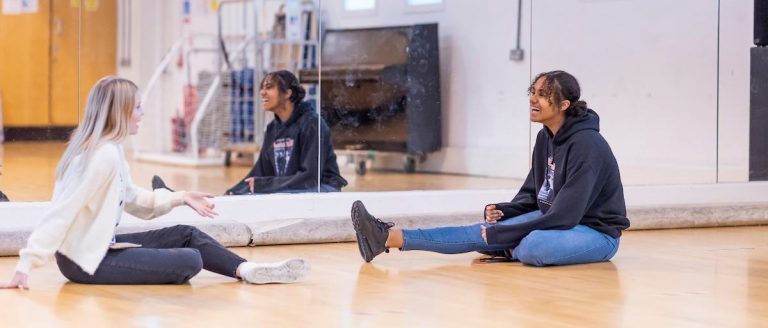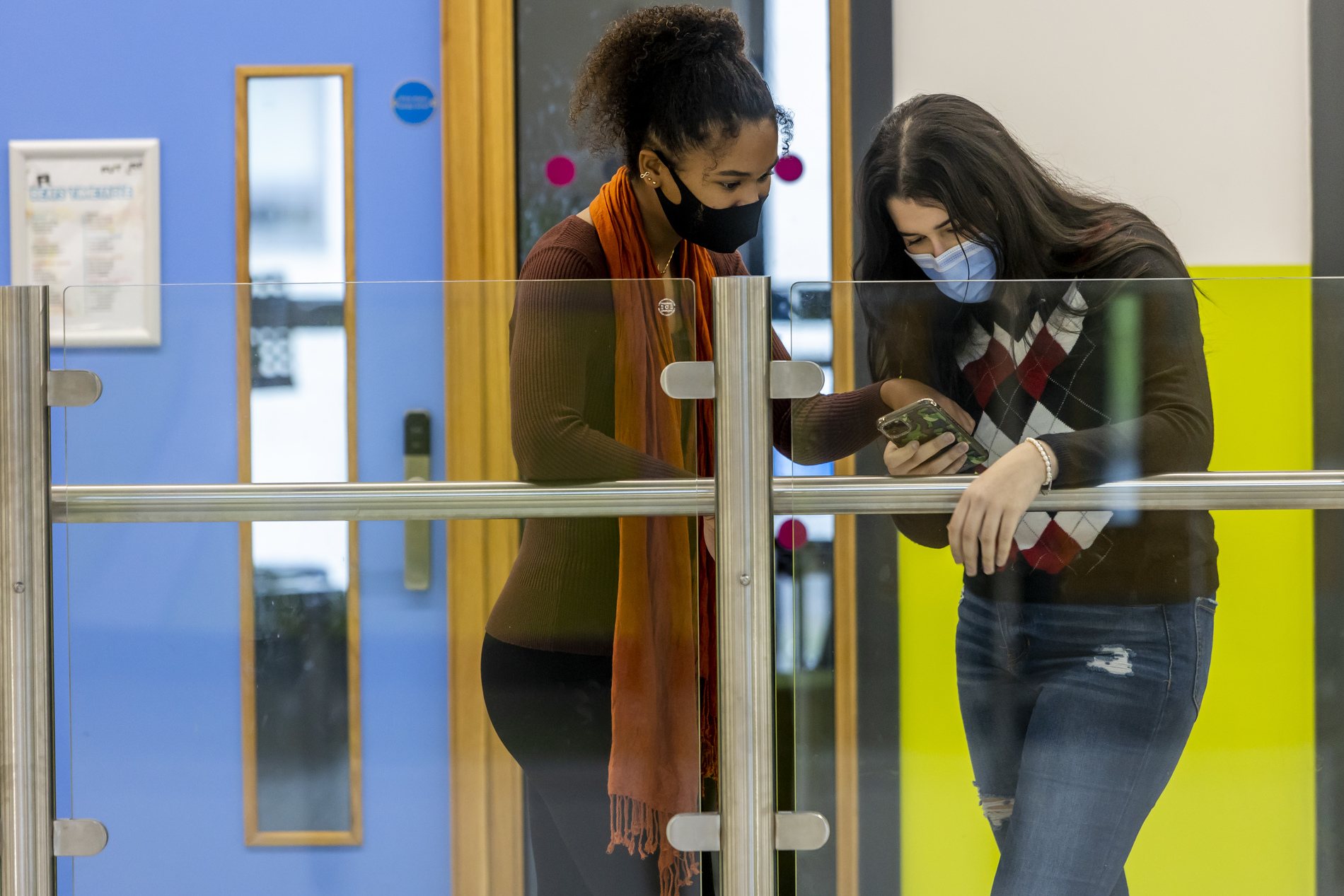Get your questions answered on work & study
Welcome to the wonderful world of work and study. Here you’ll find articles on everything from time management, distance learning and part time study to gap years, workers’ rights and internships.
Support & advice for full time work
If you’re already working full time you might want to learn how to manage depression or anxiety at work, find out more about statutory sick pay (SSP) or learn how to fill out your self assessment form. We’ve also got some useful information when it comes to claiming a tax refund, and much more.
Part time work & pro rata pay
If you do part time work then your pay and annual leave allowance will be calculated on a pro rata basis, meaning that your wage and annual leave will be proportionate to the amount you work compared to people working full time. Pro rata means ‘in proportion’ (translated from Latin) and is sometimes called proportionate allocation.
School, exams and mental health
If you’re still in school, you might be preparing for exams, but how do you cope with exam stress? What are the best ways to revise? There can be a lot of anxiety during exam season; you might want to find out how to deal with the pressure and look after your mental health.
University and student life
If you’re thinking about retraining or wondering what to do after school, you may have university on your mind. But what is student life like? How much does it cost to be a student? Is university even for you, anyway? There’s a lot to learn, and not all of that learning will take place in the classroom. What about drugs? And what can you expect from freshers’ week?
Post graduate advice
It’s not like everyone at uni knows exactly what they’re going to do when they graduate, but it might be a good idea to start thinking ahead, too. How are you going to pay off your student loans? How are you going to cope with a potentially long job hunt? How do you even decide what you want to do with the rest of your life, anyway?
OK, enough with the questions. As you can see, whatever you want to know about work and study, The Mix has got you covered. So, dive in and get started!
Useful resources
Mental health and exam expectations
How to stay motivated while you study
How to cope with uncertainty about school and exams
What are my employment rights?
Read our expert chat on exam stress
A young person’s story about creating a brand for Black women
Sexual harassment in the workplace
What to do when you have an exam the next day
Find support on student mental health from Student Minds
Looking after your mental health at work
Support for apprenticeships and career and life skills with Apprentice Nation
How to stop procrastinating
Instead of getting frustrated with yourself about procrastinating when you’re trying to revise, it’s always helpful to ask why you may be doing so. For instance, is there something you’re particularly anxious about? It’s important that you give yourself space. Watch our video to get more tips from our Young Ambassador, Abi.
Find out more
Top articles
FAQs
How do I cope with the pressure from exams?
Exam pressure is horrible no matter what test you’re taking. The pressure to perform can feel like exams are the be all and end all of EVERYTHING EVER, but we promise they’re not. Take breaks, manage expectations, offer yourself some kind words and you’re guaranteed to do better in your examinations. The Mix breaks exam pressure down.
Take a break from social media. Feeling guilty isn’t going to get you better examination results. But we know that this small sentence alone isn’t going to change your mind. So, take a look at this article on protecting your mental health online as well.
Stop comparing yourself. Easier said that done we know. Regardless, you have to try. Whenever you start beating yourself up because you haven’t done as well as a friend, recognise this as an unhealthy thought. Replace these thoughts with a reminder of all the things you’re great at – a bit of self-love is truly a game-changer.
Ask your friends for help. There’s no shame in asking for help. Quite the opposite actually, people will think you’re brave. Maybe you could organise a study group outside of school where you and your friends can revise together and share revision tips? Then get on the phone and start doing it!
Get some tips on calming breathing exercises from this Student Space article.
How do I decide which job to do?
Deciding what you want to do when it comes to work can be difficult to say the least. Do you have a dream job you can build your career path around? Or do you have no idea what job you should do now, let alone in the future? Whether you’ve got a yellow brick road to follow or you feel like there’s a brick wall standing between you and your career path, The Mix is here to help!
If you’re feeling a bit stuck and unmotivated on your job hunt, or you fancy a change of scenery, it might be a good idea to come up with a career development plan. This consists of four clear steps to help you work out what the hell you’re doing. The first involves identifying your skills and interests. Are you a people person? What subjects did you enjoy at school or university? What motivates you?
With that in mind, it’s time to research some of the job sectors and career paths that apply to your interests. Try to decide what industry you want to work in, and find out its key trends by researching the local, national and global jobs market. This will help you discover potential career paths and understand which roles are expanding or declining. Would you prefer to work in a small or large organisation?
Hopefully by step three you’re feeling more empowered to make a decision, because the time is now! Here you’ll identify the occupation you’re most interested in, as well as a few alternatives to fall back on if your first choice doesn’t pan out.
Finally, it can really help to set achievable goals so you can work out where you want to be, along with what actions are needed and when, all separated into short, medium and long-term aspirations.
If you’re still having trouble finding work after following these steps, remember you’re not alone! Keep checking the Mix for expert advice when it comes to finding work, and try not to get discouraged.
How do I choose the right qualification for me?
Most people’s first qualifications will be their GCSEs, and these are the first major qualification milestones to pass if you would like to eventually apply to university.
There are also GCSEs available in vocational subjects that relate directly to employment in particular areas, such as engineering, IT, hospitality or healthcare. Practical courses like these can be mixed with other GCSEs if work-based qualifications are more your thing.
If you already have a particular career path in mind, choosing some of these vocational subjects such as engineering might be your best bet.
Struggling to decide what to do after your GCSEs? Many people choose AS and A-Levels, but there are other post-GCSE options to choose from, too.
The most obvious benefit of getting your A-Levels is to secure yourself a place at university, but A-levels are also widely recognised by employers. A strong set of results, combined with a degree, will help you stand out from other candidates.
Of course, university isn’t for everyone, and you might find it more useful to get an NVQ or SVQ (the Scottish equivalent), which is an industry-driven qualification designed to help you find work in a specific job or role.
You could also make your CV more appealing with a Skills For Life qualification, or do a range of occupational-based subjects with a BTEC, where you can learn valuable skills in areas like the creative arts or hospitality.
Whatever you want to do, the Mix is here to help you find the right path. If you’ve got any questions or comments when it comes to qualifications, why not drop a post on our discussion boards?
How do I adjust to student life?
Adjusting to student life can be difficult, especially if you get homesick. And even if you’re living at home and commuting to uni, there’s still a lot to get used to. You’re a grown up now, with responsibilities — but you might feel the pressure to juggle that with partying like it’s 2099.
If it all gets a bit much, the Mix is here to help with expert advice and true stories from students on everything from getting depression at uni to living through lockdowns in term time.
Not everybody has a great time at university, and sometimes you have to put your mental health first. If you’re really suffering, you might want to change your course or where you’re living, and don’t forget that your uni should have some kind of mental health support you can get in touch with, including your personal tutor.
If you’re experiencing a bit of a culture shock after leaving friends and family behind, the first thing you should do is accept that these kinds of feelings are perfectly normal. Student life can be difficult to adjust to, and almost everyone gets homesick at some point.
If you’re struggling to make friends with the rather random selection of people you’ve been assigned to live with, it might be a good idea to join some societies or clubs. Meeting and speaking to new people can be a lot easier if you’ve got a shared goal or task you’re supposed to be doing.
Again, don’t beat yourself up if you’re not always at ease socially, or if burning the candle at both ends in terms of work and play is leaving you feeling…burnt.
Prioritising time management should help, and try not to get pressured into doing things you don’t want to do, whether that’s spending too much money, using drugs or going out when you just want to kick back, relax and recharge.
How do I apply for university?
The question of how to apply for university certainly throws up a whole host of other questions. How much does it cost to be a student? What can you do if you end up hating your course? How should you manage your money while you’re at uni? If the prospect of applying to university is filling you with anxiety, The Mix is here to help with everything, from questions to ask at a university interview to advice on paying back student loans.
On this page, you’ll find a whole host of information, including when to apply for university and how clearing works. Going to university or college opening days is always a good idea, but when it comes to actually putting your UCAS application together, a lot of different factors, such as if you’re a young carer, might affect your approach. Sometimes people go into higher education just because they’re not exactly sure what they want to do next, and we can help you with that, too.
Tuition fees and student loans are another big topic if you’re thinking about going to uni. How much does it cost to be a student, exactly? And how do you avoid getting into mountains and mountains of student debt before you’ve even started working? Our experts are here to help with advice on claiming benefits as a student, along with a variety of money making tips to help you shake off the ‘skint student’ stereotype.
For many courses, part of the university and college admissions process will involve an interview. Now, that might sound about as scary as abseiling down Mount Everest, but fear not! We’ve got plenty of resources to ensure you’re as prepared as possible, including advice on body language and questions to ask at a university interview that’ll make you sound more intelligent than Albert Einstein (although it’s best to avoid exaggerating too much).
So, let’s show the interviewer what you’re made of, smash your personal statement and blaze a trail through the university system like never before!


























